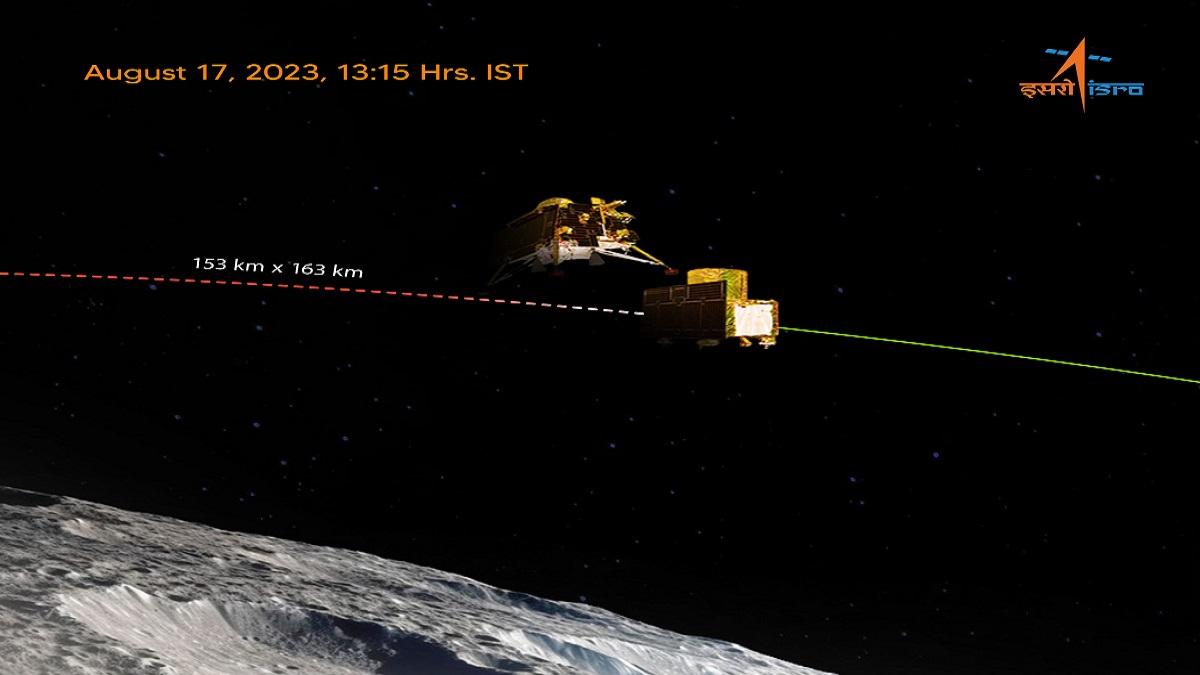The Chandrayaan-3 Vikram lander is preparing for a significant deboosting maneuver on Friday, following its successful detachment from the propulsion module a day earlier. The crucial deboosting maneuver is planned to take place today around 1600 IST.
Deboosting is the process of slowing down to position itself in an orbit where the orbit’s closest point to the Moon (Perilune) is 30 km and the farthest point (the Apolune) is 100 km.
The Chandrayaan-3 mission’s lander has Vikram Sarabhai’s name. Vikram Sarabhai, who lived from 1939 to 1971, is widely recognized as the founder of India’s space program.
A week before its planned landing on the south pole of the moon on August 23, the Chandrayaan-3 spacecraft completed its penultimate lunar-bound orbit lowering manoeuvre on Wednesday.
What next for the lander module?
It has been a month and three days since the Indian Space Research Organisation launched the Chandrayaan-3 mission on July 14. The spacecraft was launched from the Satish Dhawan Space Centre in Andhra Pradesh’s Sriharikota.
With a successful separation, the lander module will now continue its lunar journey independently. A series of deboost manoeuvres have been planned for the lander. As per ISRO, the first deboosting manoeuvre will take on 18 August evening.
ISRO is bidding to make a successful soft landing on the moon. It will make India the fourth country in the world to achieve the feat. It has been done earlier by the United States, Russia, and China.
Also Read : Canada: 3rd person involved in the murder of Khalistani leader Nijjar identified
The spacecraft was launched on a GSLV Mark 3 (LVM 3) heavy-lift launch vehicle and put in lunar orbit on August 5. Since then, it has undergone a number of orbital manoeuvres.
The Indian Space Research Organization launched the Chandrayaan-3 mission on July 14. It has been orbiting Earth for one month, and three days.
The approved cost of Chandrayaan-3 is Rs 250 crores (excluding launch vehicle cost).
Chandrayaan-3’s development phase commenced in January 2020 with the launch planned sometime in 2021. However, the COVID-19 pandemic brought an unforeseen delay to the mission’s progress.

